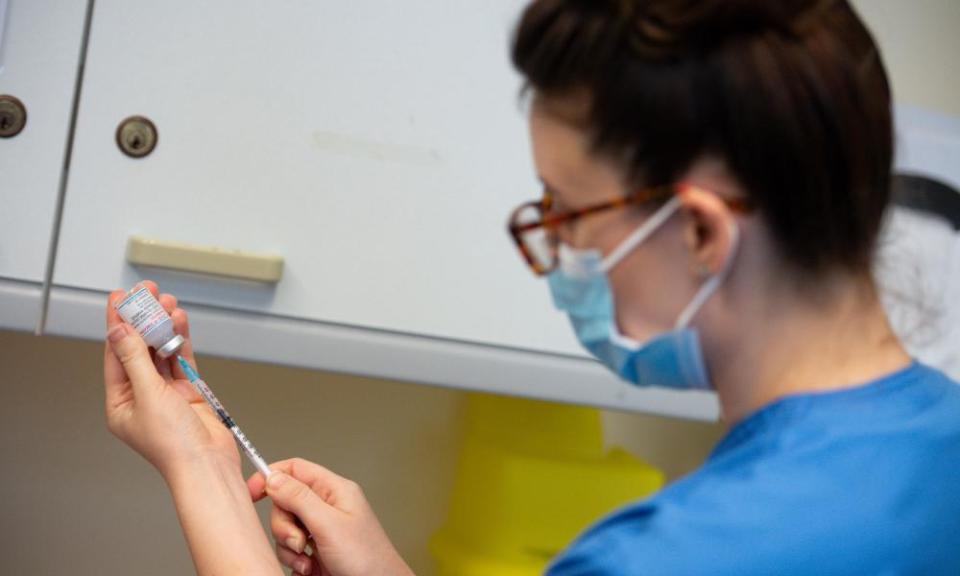Long Covid symptoms ease after vaccination, survey finds

Covid-19 vaccines tend to alleviate the symptoms of long Covid, according to a large survey of more than 800 people that suggests mRNA vaccines, in particular, are beneficial.
Though Covid-19 was initially understood to be a largely respiratory illness from which most would recover within a few weeks, as the pandemic wore on increasing numbers of people reported experiencing symptoms for months on end. There is no consensus definition of the condition of these people who have symptoms ranging from chronic fatigue to organ damage, let alone a standardised treatment plan.
As vaccines hit the mainstream, concerns arose that vaccination could precipitate relapses or a worsening of symptoms. But conversely, anecdotal reports suggested that vaccines helped some people with long Covid.
The analysis, which is yet to be peer reviewed, was conducted on the basis of a survey of 812 people (mostly white, female participants) with long Covid in advocacy groups in the UK and internationally who were contacted via social media. The participants (a small proportion of whom also said they had ME/CFS) were asked to wait at least a week after their first dose to avoid their responses conflating with side-effects of the vaccine.
Scores across 14 common long Covid symptoms were compared before and after the first vaccine dose. Data showed that 56.7% of respondents experienced an overall improvement in symptoms, with 24.6% remaining unchanged and 18.7% reporting a deterioration in their symptoms.
In general, those who received mRNA vaccines (Pfizer/BioNTech or Moderna) reported more improvements in symptoms, compared with those who got an adenovirus vaccine (Oxford/AstraZeneca). In particular, those who received the Moderna vaccine were more likely to see improvements in symptoms such as fatigue, brain fog and muscle pain, and less likely to report a deterioration, the analysis found.
“This survey will reassure people that they would have to be quite unlucky to really have an overall worsening of symptoms,” said analysis author Ondine Sherwood, from the patient advocacy group LongCovidSOS. “The data is very encouraging, but we don’t know how long the benefits last.”
Dr David Strain, also an analysis author and a senior clinical lecturer at the University of Exeter medical school, said: “There isn’t a blood pressure tablet that fixes everybody … and similarly, there’s not one long-Covid treatment that’s going to fix everyone – but the fact that one treatment does fix something means that there’s bound to be other treatments out there that will fix others.”
This data cannot definitively prove that the vaccine made the subjects’ symptoms better – they may have been getting better anyway after months of being symptomatic. However, in the 130 people in the survey who received both doses of vaccine, some patients got better after their first dose – then started to experience a resurgence in symptoms – and then got better again after their second, noted Strain.
Given that the improvement in symptoms in about half of the participants had abated by the time they completed the survey, the study could indicate that the improvement (if attributed to vaccine effect) was transient, said Nisreen Alwan, an associate professor in public health at the University of Southampton.
It is unclear why some people get long Covid, but immunologists – in particular Dr Akiko Iwasaki, professor of immunology at Yale University – have hypothesised that long Covid could be explained by one or a combination of reasons: the persistence of the virus remaining within the body; fragments of the virus lingering after infection; and the immune system overreacting and hurting healthy tissue in response to the infection.
The analysis suggested Covid-19 vaccines helped to reset the immune system, letting the body know that its defences should respond to the virus but not attack itself any more, said Strain, cautioning that this explanation was speculation, and had to be ratified with further research.
Prof Danny Altmann, a professor of immunology at Imperial College London who is working alongside Iwasaki, said: “How could a vaccine make a subset of long-term sufferers feel better? It’s tempting to hypothesise that this was the subset who had symptoms due to a reservoir of virus that was never properly cleared, and the enormous boost of a potent vaccine equipped them with the immune response to do this. This needs mechanistic investigation of the actual immune responses.”
There is no consensus on the prevalence on long Covid. The latest data published by the Office for National Statistics suggests that in the four-week period ending 6 March, an estimated 1.1 million people self-reported having long Covid in the UK.

 Yahoo Finance
Yahoo Finance 